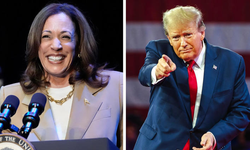The FTC’s recent push targets a variety of additional fees that restaurants impose, which often appear as surprise charges on patrons’ bills. These surcharges can include anything from "service fees" to "administrative charges," which many argue are simply ways for restaurants to increase their revenue without being transparent about the actual cost of the meal. The commission’s efforts to crack down on these practices are part of a broader initiative to enhance consumer protection and ensure that businesses are upfront about all costs associated with their services.
In response, many restaurants are pushing back against the FTC’s new rules. They argue that these fees are essential for covering rising operational costs, including labor, supplies, and other expenses that have surged in recent years. For many dining establishments, especially smaller or independent ones, these surcharges have become a necessary mechanism to manage financial pressures and maintain profitability.
The restaurant industry contends that the new regulations could have adverse effects, potentially driving up menu prices as establishments seek alternative ways to offset their costs. They also argue that the FTC’s approach does not account for the complexities of running a restaurant, where various fees and charges are often used to cover legitimate expenses that are not always immediately apparent to customers.
Moreover, restaurant owners are concerned that the crackdown may not effectively address the root causes of the issue. They claim that the focus on surcharges could overshadow other factors contributing to the overall cost of dining out, such as inflation and supply chain disruptions. Some industry groups are advocating for a more nuanced approach, suggesting that transparency and clearer communication with customers might be a more effective solution than outright bans or restrictions.
As the debate continues, both sides are preparing for potential legal and regulatory battles. The restaurant industry is mobilizing to challenge the FTC’s new rules, while consumer advocacy groups are supporting the crackdown, arguing that it is a necessary step to protect diners from deceptive pricing practices. The outcome of this conflict could have significant implications for how restaurants manage their pricing structures and how consumers experience dining out in the future.
The FTC’s crackdown on junk fees is part of a broader trend of increased regulatory scrutiny on business practices that affect consumers. As the situation develops, stakeholders on both sides are closely watching to see how the conflict will be resolved and what changes might occur in the restaurant industry’s approach to surcharges and additional fees.














